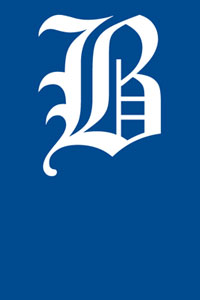
The crisis on the Korean Peninsula is reaching its peak. North Korean leader Kim Jong-un has threatened to wage an attack on the United States and South Korea using "smaller, lighter and diversified nuclear weapons". Shuttle diplomacy is now being conducted between key players in an attempt to alleviate the tense situation.
Indeed, all the key players, North Korea, South Korea, the United States, China and Japan are members of the Asean Regional Forum (ARF), a platform for security discussions first established in 1994. Asean has its own dispute settlement mechanisms which could be employed as part of preventive diplomacy.
It is true that these mechanisms may not always work, as seen in the case of the Thai-Cambodian conflict over the Preah Vihear temple. But at least, they can provide North Korea and South Korea a platform through which they can maintain their communication to avoid a catastrophic war. Asean can sincerely offer a channel for negotiation, something that the six-party talk framework has been unable to do.
Byung Koo Choi, the Korean Ambassador to Brunei, said Brunei "can play a crucial role, as the chair country of Asean this year. Asean can take the opportunity and play a constructive role and this will increase its prestige, especially under the chairmanship of Brunei. We look forward to the Brunei Government's contribution.".
If Asean is serious about pursuing a significant role in regional conflict, it will have to be creative in dealing with crisis. And Asean can achieve this by making use of its strong relations with North Korea to influence the leaders in Pyongyang.
In recent years, North Korea has strengthened its ties with some Southeast Asian states as part of its strategy to recruit allies. Accordingly, Pyongyang renewed its relationship with Nay Pyi Taw in 2007. Bilateral relations were frozen in 1983 following a failed assassination attempt of the then South Korean president Chun Doo Hwan during his official visit to Myanmar. The bombing killed 21 of the president's entourage, including four cabinet ministers. Myanmar quickly arrested the North Korean assassins, but it was too late to repair the damaged relationship.
Isolated from the global community then, North Korea and Myanmar found security in their comradeship. They recognise the benefits of mutual support and were happy to carpet over old tensions. Lately, rumours grew louder over the possible transfer of nuclear technology from North Korea to Myanmar. But so far, there has been no evidence that confirms North Korea's assistance in the building of a Myanmar nuclear reactor.
Meanwhile, North Korea has also forged a cosy relationship with Laos. Numerous exchanges of visits between the leaders of the two countries were evident. Members of the Lao Communist Party, Foreign Ministry officials, and Lao People's Army (LPA) military officers have repeatedly visited Pyongyang allegedly in support of North Korea's nuclear weapons programme. Indeed, Laos has become a staunch supporter of North Korea. The North Korean Embassy in Laos is one of the largest in Southeast Asia, second only to Myanmar.
Apart from the political ties, North Korea has also extended its economic networks with these Southeast Asian countries. Its business presence can be felt in Myanmar, Laos, Cambodia and Thailand. North Korean businesses have increasingly made inroads into the heart of Southeast Asia. The Pyongyang Restaurant in Cambodia's Siem Reap was so successful that the latest branch was recently launched in the capital Phnom Penh. Owned and run by the North Korean government, Bertil Lintner, a Swedish journalist noted, the restaurant is famous not only for its cold noodles and barbecue served with kim chi, but also for its talented staff, which when not serving are dancing to traditional Korean tunes played on violins and an electric piano.
In 2006, the owner opened an even bigger restaurant in Bangkok, with all the waitresses dressed in traditional costumes known as chima jogoiri, and with little Kim Il-sung badges on their blouses. Mr Lintner mentioned that the choice of Thailand was significant as the kingdom is currently North Korea's third largest trading partner, after China and South Korea, and of course a favourite destination for North Korean refugees. Mr Lintner also reported that the Pyongyang authorities, threatened with sanctions, were able to continue to run a string of small-scale companies and business across the region that kept foreign-currency earnings flowing back home.
Southeast Asia provides North Korea with much-needed breathing space, at a time when the regime has threatened regional peace. Asean could constrain its ties with North Korea should it decide not to enter in a dialogue in the standoff on the Korean Peninsula. Pyongyang needs a tough response from Asean.
Pavin Chachavalpongpun is associate professor at Kyoto University's Centre for Southeast Asian Studies.
